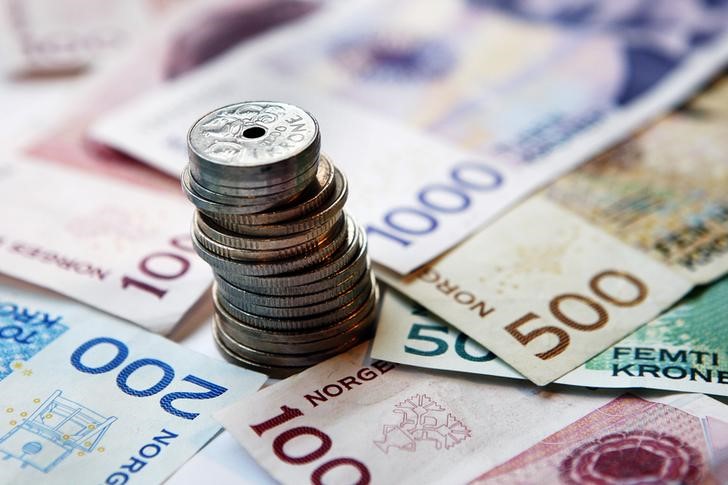 © Reuters. Norwegian banknotes and coins of different denominations
© Reuters. Norwegian banknotes and coins of different denominationsOSLO (Reuters) – The Norwegian government lowered the central bank’s inflation target to 2 percent from the current 2.5 percent, it said on Friday, adding that this would align Norwegian policy with that of other similar countries.
“Inflation targeting shall be forward-looking and flexible so that it can contribute to high and stable output and employment and to counteract the build-up of financial imbalances,” the finance ministry said in a statement.
The crown currency rallied about 1.5 percent against the euro following the decision, hitting a five-week high of 9.5425 before giving up some of the gains.
“In Norges Bank’s assessment, the new regulation will not result in significant changes in the conduct of monetary policy,” central bank Governor Oeystein Olsen said in a separate statement.
Norway first introduced an inflation target in 2001, at a time when it planned to phase in large revenues from its oil and gas industry.
“The period of phasing in oil revenues is now largely behind us. There are no longer any compelling arguments for targeting a higher inflation rate than other countries,” Finance Minister Siv Jensen said.
The decision was surprising, DNB Chief Economist Kjersti Haugland said.
“The crown is strengthening on this. The market believes the central bank will raise rates at a faster rate than before.”
Norway’s core inflation, which is adjusted for energy prices and taxes, stood at 1.1 percent in January.
Fusion Media or anyone involved with Fusion Media will not accept any liability for loss or damage as a result of reliance on the information including data, quotes, charts and buy/sell signals contained within this website. Please be fully informed regarding the risks and costs associated with trading the financial markets, it is one of the riskiest investment forms possible.
Source: Investing.com



























